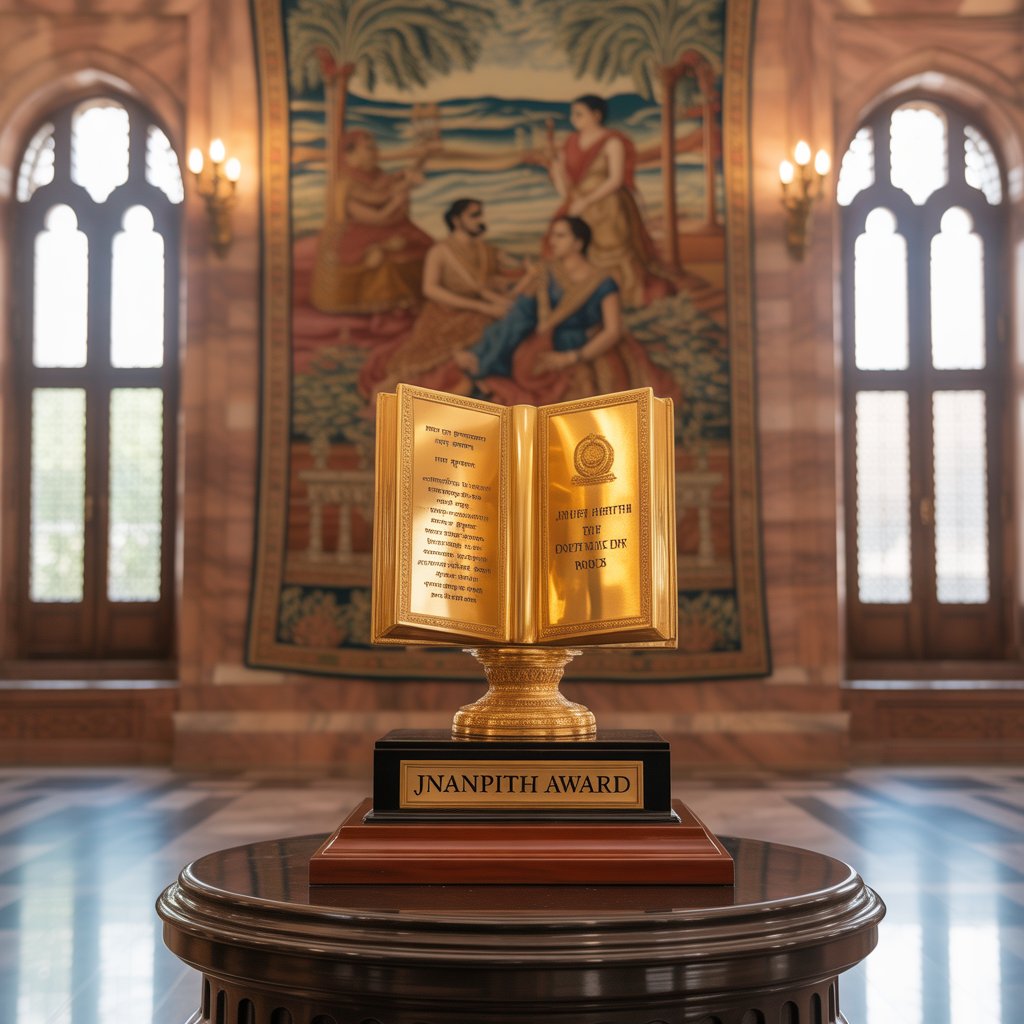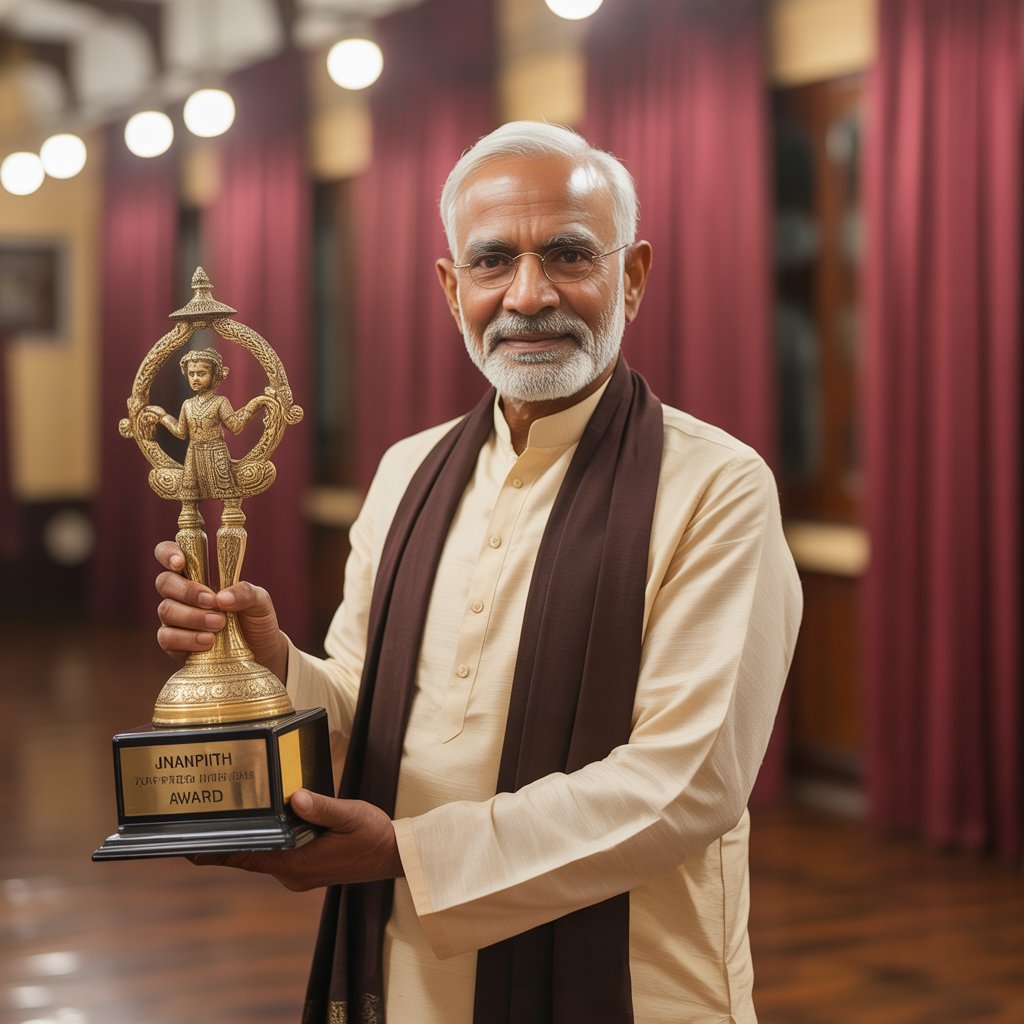
How It All Began
The award was the brainchild of Bharatiya Jnanpith, an organization founded by industrialist and philanthropist Sahu Shanti Prasad Jain. His vision was simple yet powerful: to recognize the best of Indian literature and ensure that writers across languages got the recognition they deserved.
The first ever recipient was G. Sankara Kurup, a Malayalam poet whose collection Odakkuzhal (The Bamboo Flute) won him the award in 1965. That moment set the tone for decades of honoring literary brilliance. Since then, the award has become almost a dream milestone for every Indian author.
Why the Jnanpith Award Matters
Awards come and go, but the Jnanpith has its own charm because:
- It respects all Indian languages listed in the Constitution.
- It honors works that go beyond words, carrying the soul of Indian culture.
- It gives a sense of pride not only to the author but also to their entire linguistic community.
In short, winning the Jnanpith is like leaving a permanent mark on the pages of Indian literary history.
Who Gets to Win It?
Not just any book or poem can make it here. The award has a strict process:
- Authors are nominated by scholars and critics.
- Expert panels review and shortlist their work.
- A final jury of literary giants decides the winner.
The winner is then honored with a bronze Saraswati idol, a citation, and a cash prize. But honestly, the biggest reward is the lifelong recognition and respect.

Some Legendary Winners
The list of Jnanpith Award winners reads like a hall of fame of Indian literature:
- Mahadevi Varma (Hindi, 1982) – Known as the modern Meera, her poetry continues to inspire.
- Qurratulain Hyder (Urdu, 1989) – The author of Aag Ka Dariya, a novel that spans centuries of Indian history.
- Shivram Karanth (Kannada, 1977) – A man of many talents — novelist, playwright, and environmentalist.
- Amitav Ghosh (English, 2018) – The first to win for English literature, loved for The Shadow Lines and The Glass Palace.
Each name is not just a writer but a storyteller of India’s evolving identity.
More Than Just an Award
Think of it this way: the award is like a bridge, connecting generations of readers with voices that might otherwise have remained unheard.
Fun Facts That Might Surprise You
- The award was conceived in 1961 but given first in 1965.
- Hindi and Kannada have produced the highest number of winners.
- Amitav Ghosh remains the only winner for English so far.
- More than 22 languages have found a place under the Jnanpith umbrella.
How It Stands Among Other Awards
India has other literary prizes like the Sahitya Akademi Award, but the Jnanpith remains the gold standard because of its prestige and inclusiveness. Globally, it may be compared to the Nobel Prize for Literature, but with a strong Indian heart that beats for all its languages.
Recent Winners Keeping the Legacy Alive
The Jnanpith hasn’t slowed down in the 21st century. Some recent awardees include:
- Nilmani Phookan (Assamese, 2020) – His poetry painted vivid pictures of Assamese culture.
- Damodar Mauzo (Konkani, 2021) – A novelist and short story writer who gave voice to Konkani literature.
- Rambhadracharya (Sanskrit,2023) – is an Indian Hindu spiritual leader and Sanskrit scholar.
- Gulzar (Urdu, 2023) – is an Urdu poet, lyricist, author, singer, and storyteller.
- Vinod Kumar Shukla (Hindi,2024) – is a modern Hindi writer known for his style that often borders on magic realism.
Their works show us that the award is not about the past alone, but also about nurturing the present and future of Indian literature.
Conclusion
The Jnanpith Award is more than a medal or a title — it’s a celebration of India’s soul through words. It honors the storytellers who captured the joys, struggles, dreams, and history of our people. It keeps alive the idea that literature isn’t just entertainment; it’s identity, memory, and inspiration.
As we turn the pages of Indian literature, one thing is clear: the Jnanpith Award will continue to guide us, reminding us to value not just the words on paper, but the worlds they create.




Pingback: Why Pamban Bridge India is a Must-Visit Landmark in Tamil Nadu
Pingback: Duleep Trophy 2025: History, Format, and Rising Cricket Stars